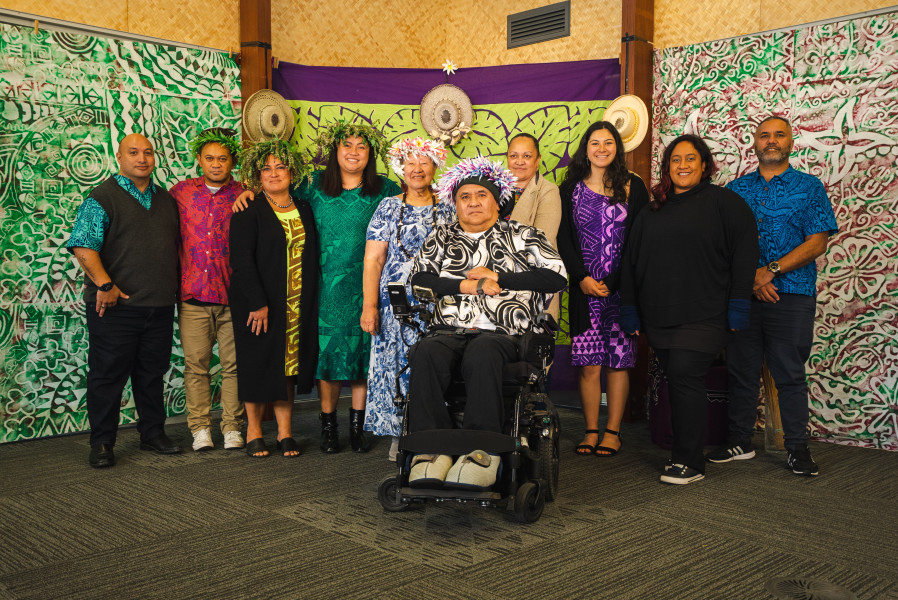Film provides window into languages and cultures of the Cook Islands
Film provides window into languages and cultures of the Cook Islands

(Picture caption: Language learners in Wellington have become filmmakers to encourage interest in endangered Cook Islands languages.)
A Wellington-based language class has taken matters into their own hands and produced a series of unique video resources aimed at re-energising interest in endangered Cook Islands languages.
E Reo Noku – Your Voice is the brainchild of educationalist, language tutor and Porirua-based community leader Teremoana Maua-Hodges, who has mobilised her students to become filmmakers to produce a series of video resources.
She says the vision behind the project is for families to use the videos as an entry point for exploring the unique languages and cultures of each of the inhabited islands of the Cook Islands - te tangianga o te reo e tona peu.
More than 90 percent of the Cook Islands population reside outside their country, including about 80,00 in Aotearoa, yet fewer than 20 percent speak their indigenous languages fluently.
Te Reo Tupuna Cook Islands Māori language class for adults, which meets regularly at Porirua College, filmed Porirua and Wellington-based community representatives from ten of the inhabited islands talking about the uniqueness of their languages and dialects, history, culture, songs and stories.
It is believed to be the first time the communities have been brought together for such a project, which was funded by the Ministry for Pacific Peoples, Wellington Community Fund, with the support of the Cook Islands (NZ) Society, D. Hunter Consultancy and Porirua College providing the venue free of charge for the classes and filming.
Teremoana adds having something visual and being able to hear the normal flow of the language, brings out the true emotion behind each story as well as the uniqueness of each tangianga o te reo or language.
The videos will be released on Facebook as 'Epetoma ō te reo Māori Kūki ‘Āirani - Cook Islands Language Week gets underway.
Each video in the series is being streamed on the hour, from midday to 9pm, on the Facebook group E Reo Noku and the Oriana TV Facebook page.
For Co-Producer Taputukura Raea, making these video resources has been a heart-warming experience.
“Five years ago, I embarked on learning the Cook Islands language because I wanted to be able to converse with my elders, and eventually my own children, in the languages of my heritage,” says Taputukura, who is descended from the islands of Mauke, Pamati, Manihiki and Rarotonga.
“I found there were many resources to learn the Rarotongan language but not so many about the languages, cultures and traditions of the other islands,” she says.
“The only way to learn is through our elders, so it was important we capture their stories, traditions, songs, and languages for us and future generations to learn from.”
More than 60 people were involved in the production, with the students transforming their classroom into a set, working with Oriana TV to film each video as if live.
“There were no re-takes or prompts, each and every one of the community representatives spoke, sang and shared their knowledge from the heart,” Taputukura says.
“It showed their knowledge is ingrained in them, that they wanted to share the stories of their ipukarea (ancestral home).”
When Enua (island groups) were approached to be involved in the production, there were valid concerns about how the videos would be distributed, who owned the copyright and ensuring they were not going to be used commercially.
“The issue of who owns indigenous knowledge or how it can be used, is complex,” says Taputukura.
“Using the Local Contexts Traditional Knowledge Labels (TKL) process, we were able to agree and define attribution, access and usage rights for the cultural knowledge captured in the videos.
“We are excited this project can pave the way for diasporic indigenous communities to officially record, and articulate their stewardship and care for cultural knowledge,” she says.
